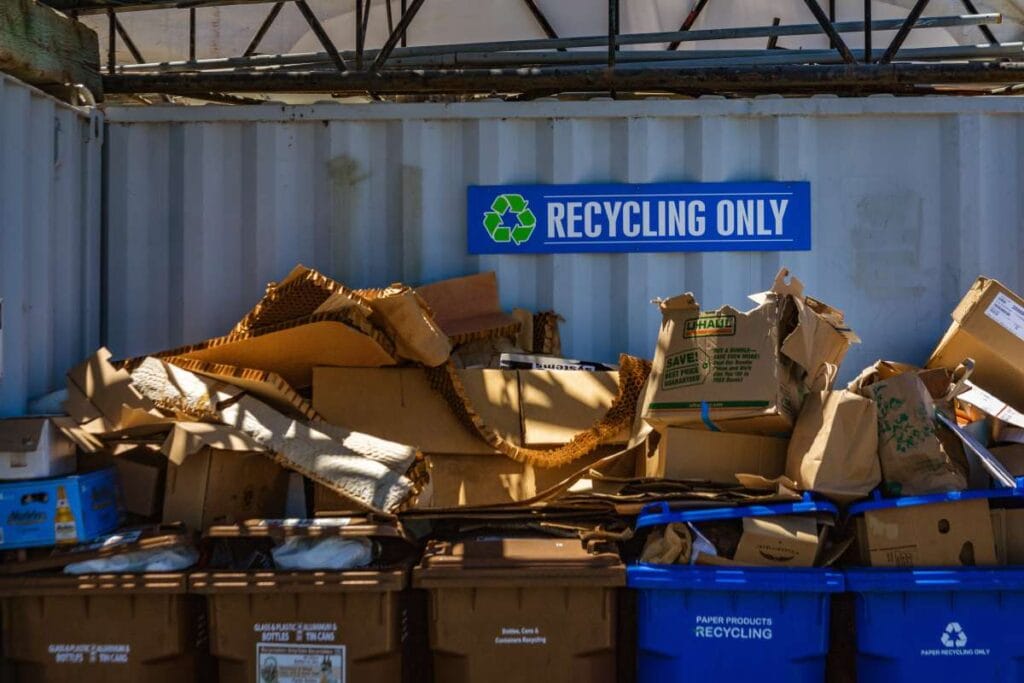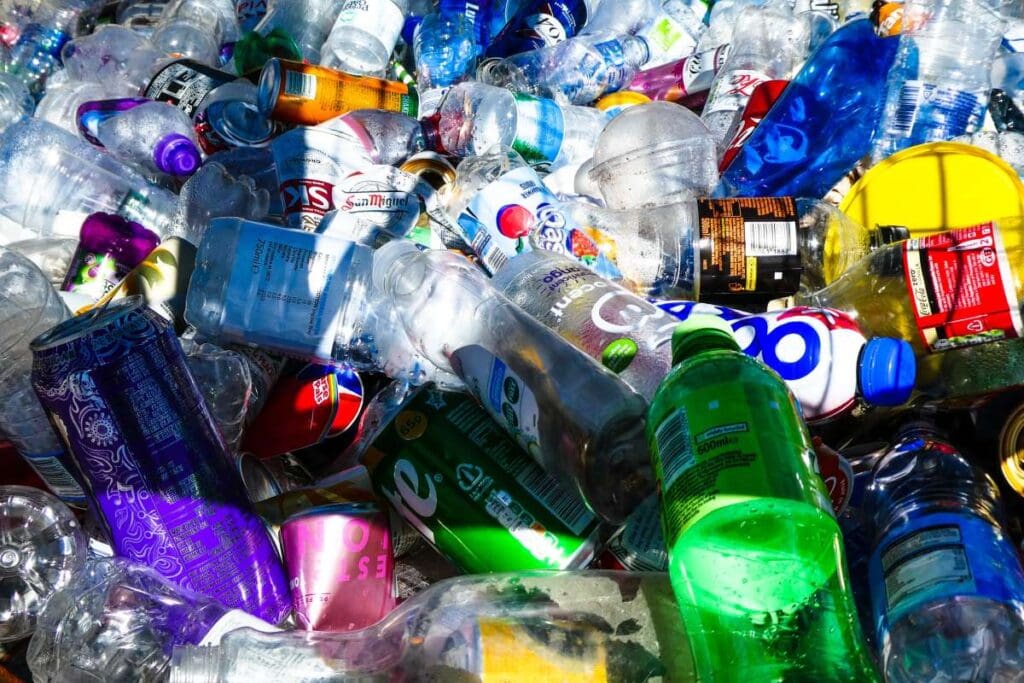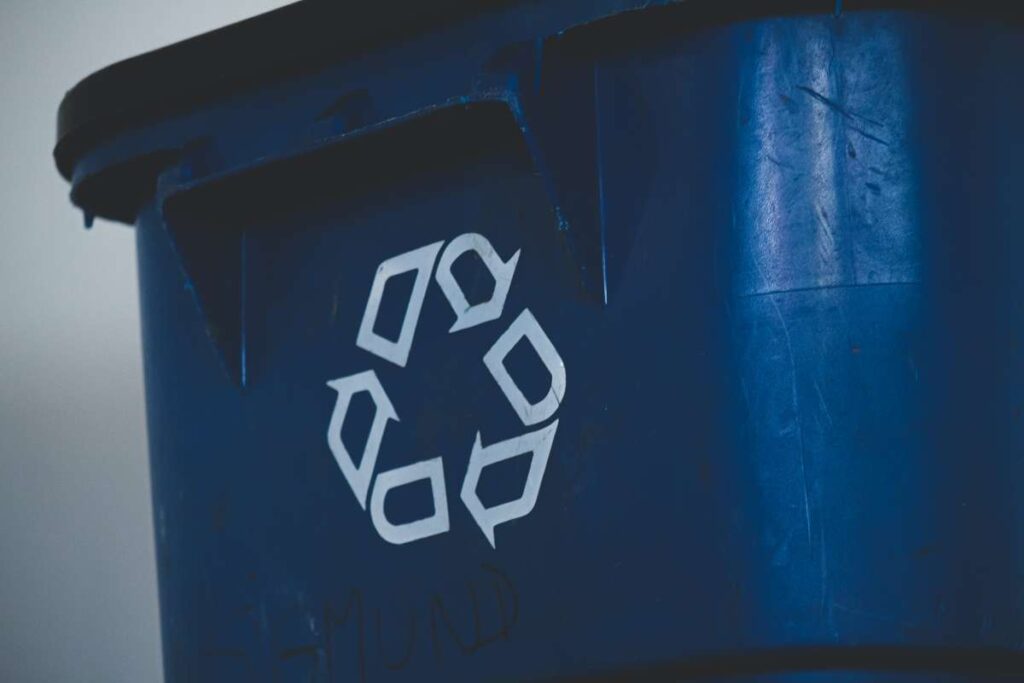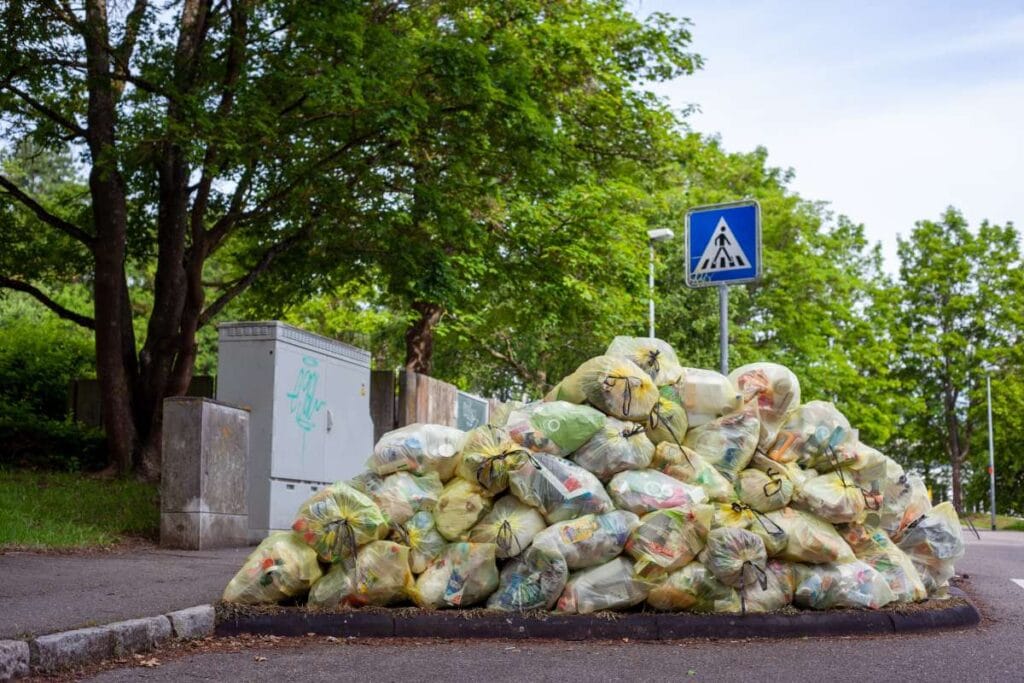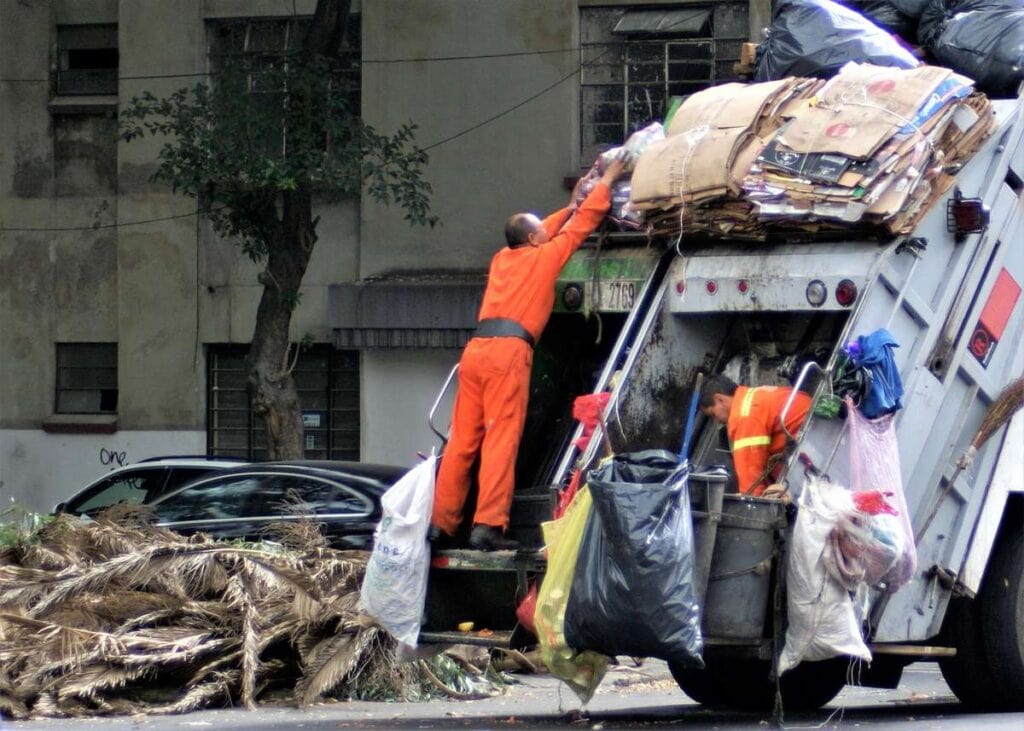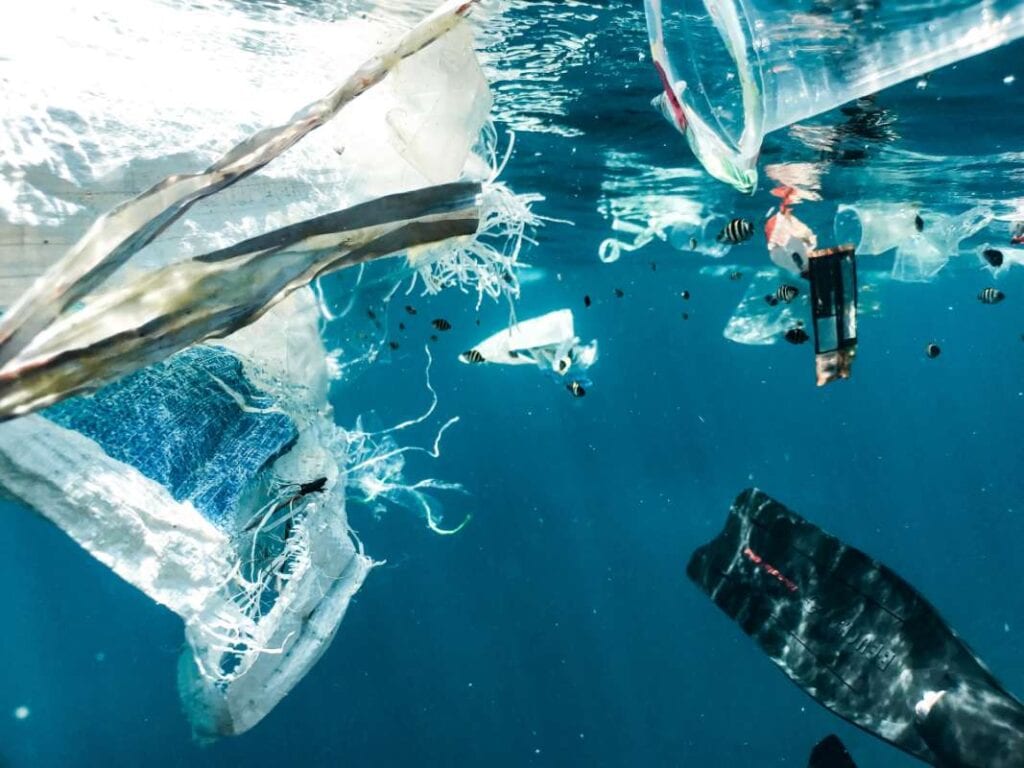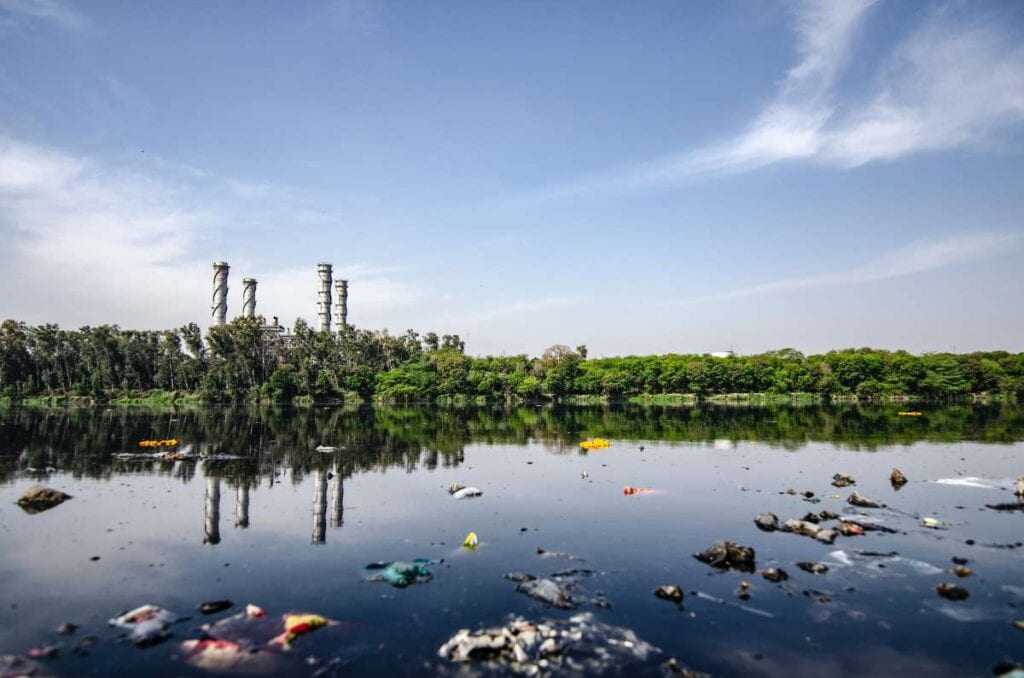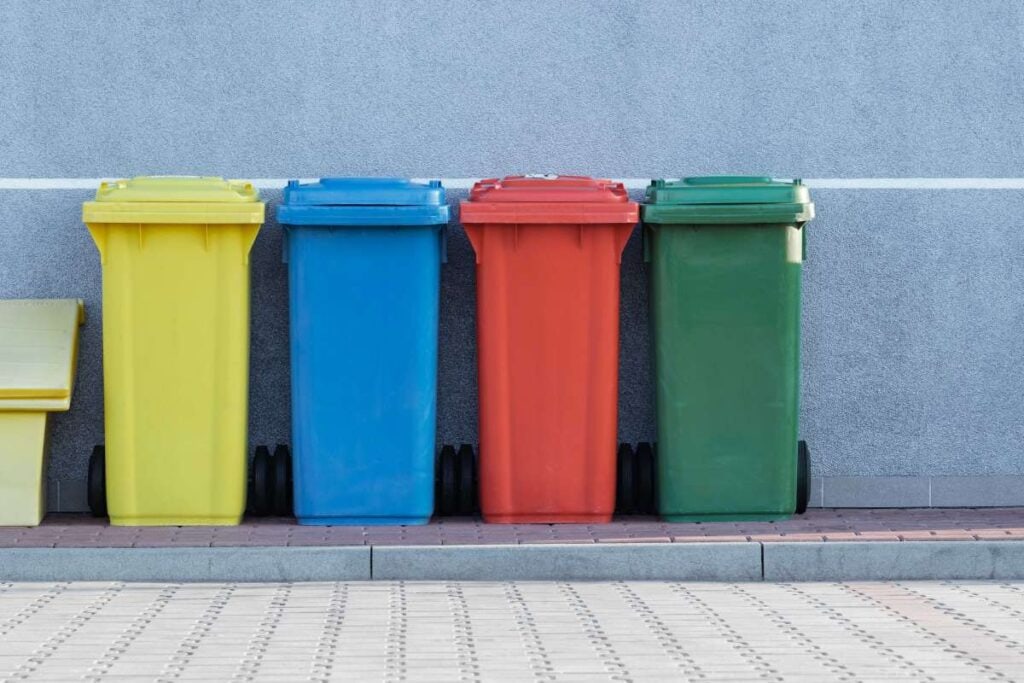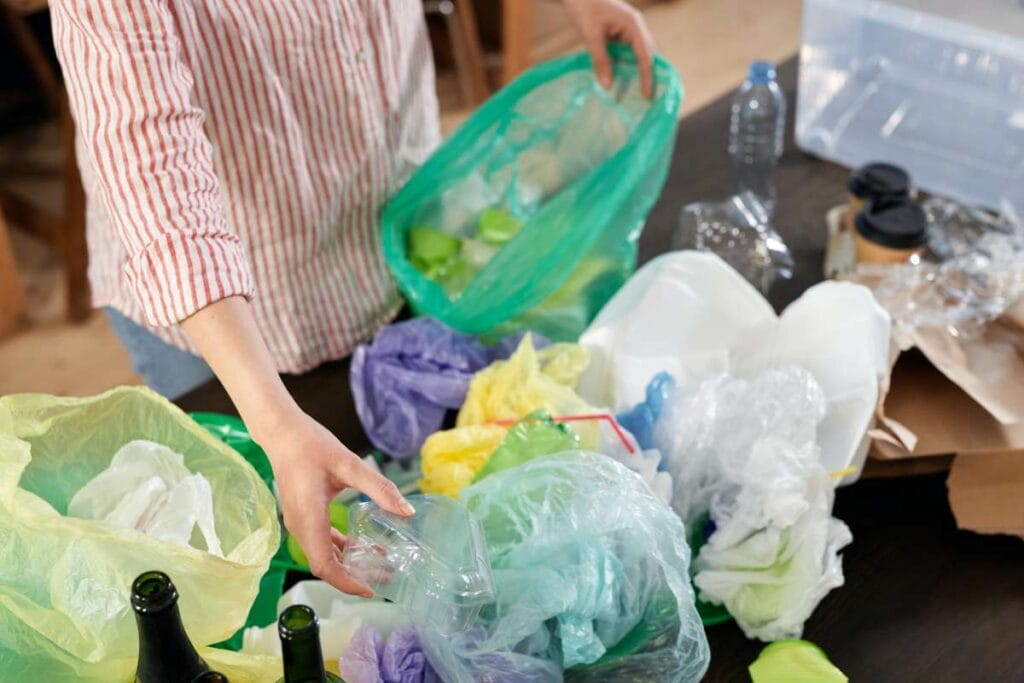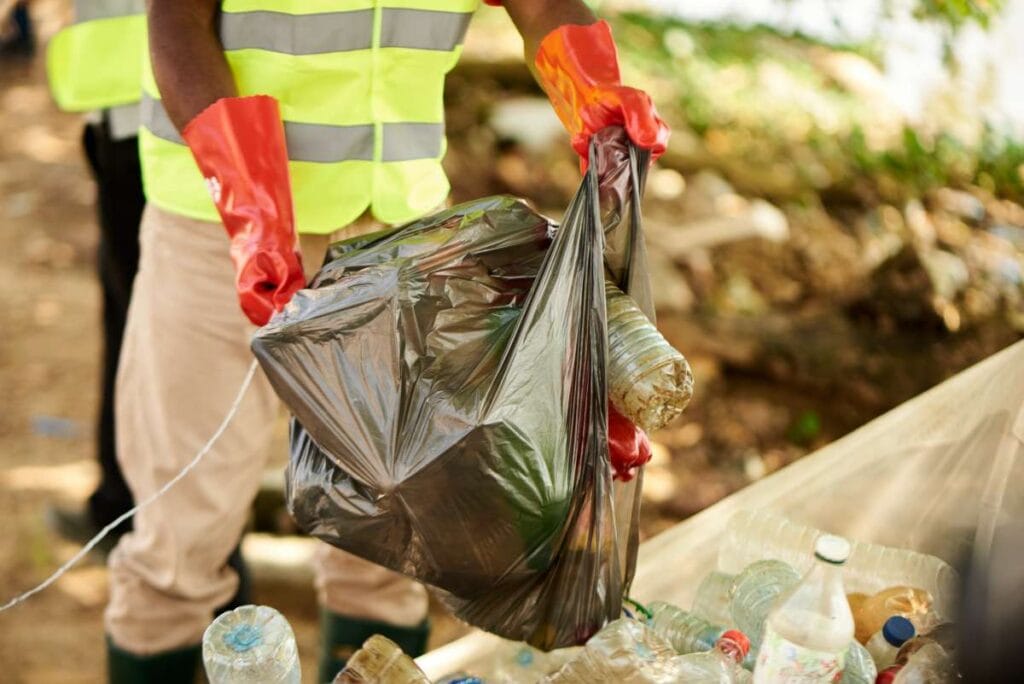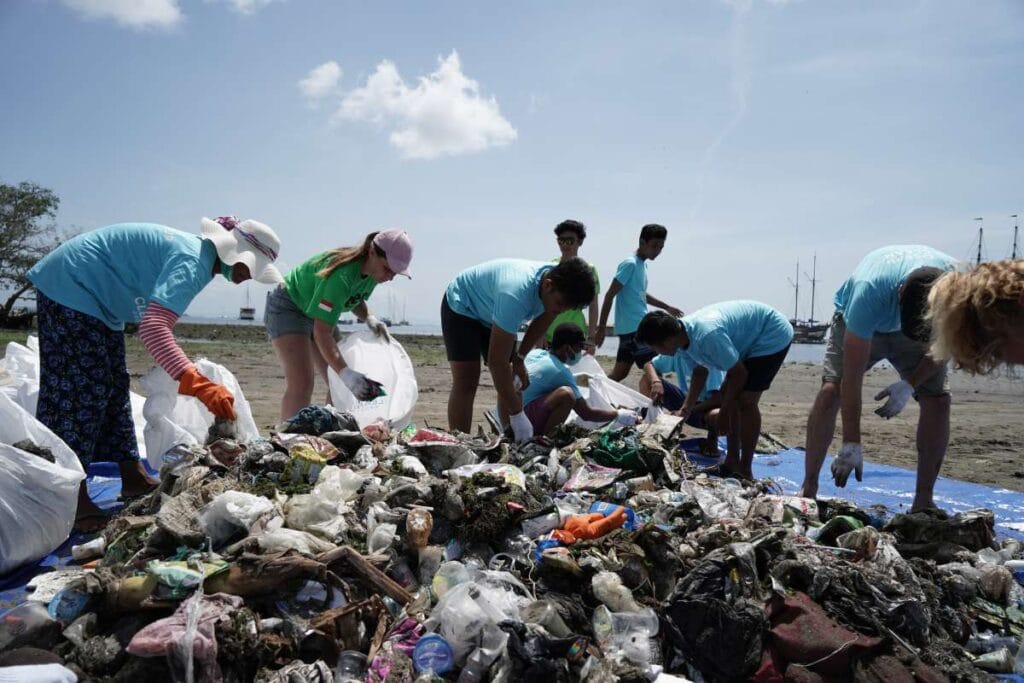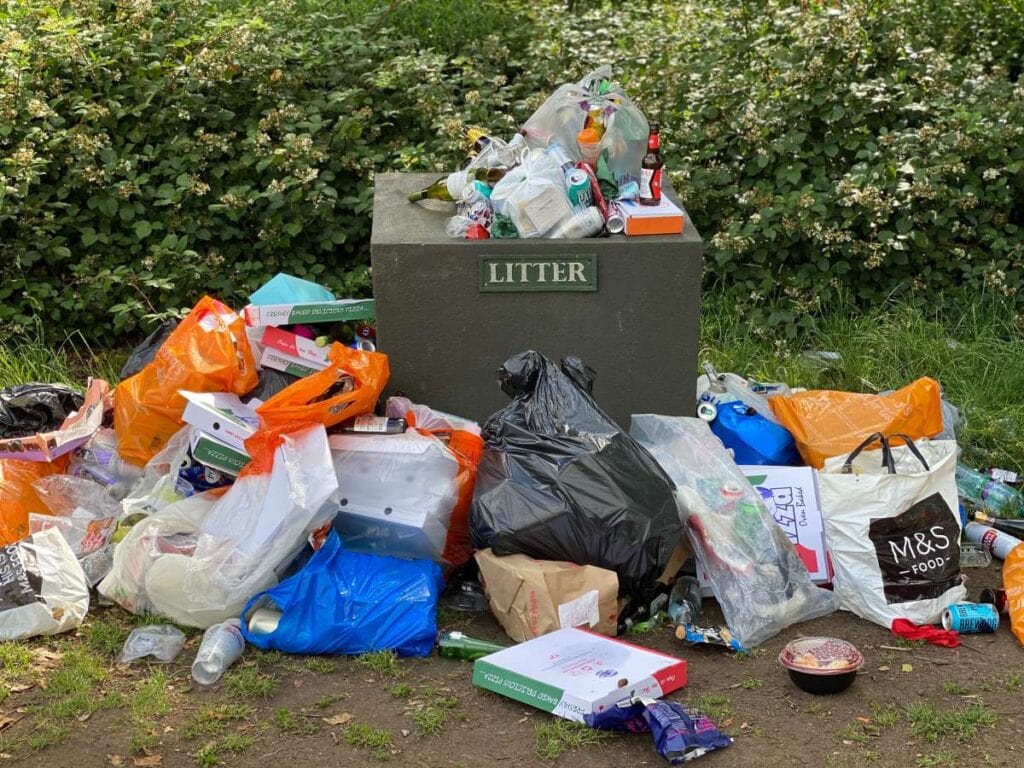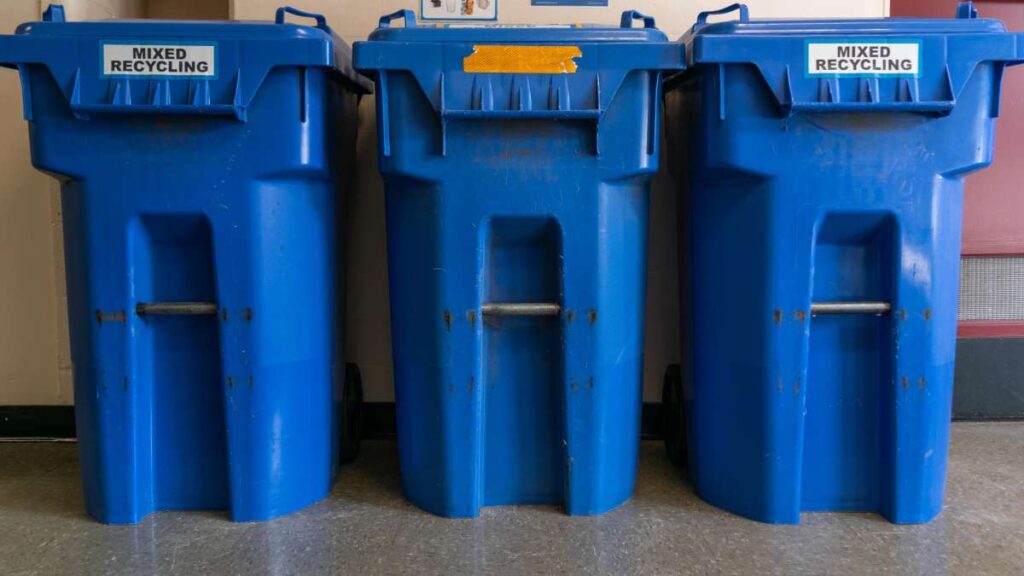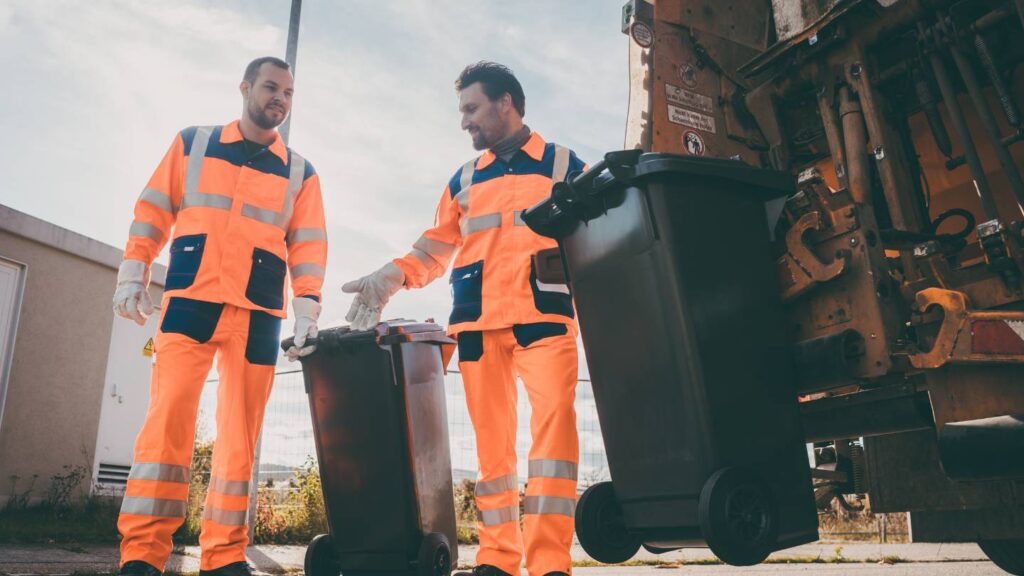Many people think it's obvious that we should all make an effort to recycle. There is a long list of environmental benefits, including fewer landfills and less dependence on newly produced materials. However, the positive effect recycling programmes can have on a neighbourhood is an advantage that is frequently disregarded.
Recycling programmes do a lot to get people to recycle, for starters. Would the lack of a community-wide recycling programme make you more or less likely to recycle? People are more likely to recycle if they don't have to put in extra effort to do so. Therefore, a community will reduce the negative environmental effects of incineration and landfill disposal by recycling more materials if it invests in a robust and dependable recycling infrastructure.
When creating recycling programmes for their communities, local governments face a plethora of choices. This post details important factors to think about when organising, promoting, and assessing recycling initiatives.
Why Recycle?
There are many financial upsides to starting a recycling programme. Recycling has the potential to increase employment opportunities while decreasing the financial burden of managing solid waste. The recycling of materials can be a source of income. Recycling also contributes to maintaining a healthy ecosystem. Water is saved, energy is saved, air pollution is reduced, and landfill space is saved as a result of this practice.
How Recycling Benefits Your Community

Creates Jobs
The creation of fresh job opportunities is an instant reward for any community that initiates a recycling programme. Drivers, sorters, and other entry-level positions are just a few of the new career opportunities that will arise as a result of the new recycling centre. There are also opportunities for those with advanced degrees, including facility managers who oversee recycling centres, scientists who study recycled materials, and regulators who make sure everything is done to code.
It's been my experience that working in the recycling industry can be both personally and monetarily satisfying. They take great pride in the role they play in keeping our planet habitable. It's difficult to put a number on that kind of contentment in the workplace. But studies show that workers are more than twice as likely to take pride in their work if they believe their efforts have a positive effect on the environment. Furthermore, the monetary compensation can be quite high depending on the specific job title.
Conserves Natural Resources
The need for resource looting by communities will be eliminated. Here are a few instances in which recycling certain types of waste can help reduce the strain on the world's supplies.
Paper
Reusing paper helps keep our forests standing, which is an obvious advantage. Reusing these materials has multiple environmental benefits, including preventing further tree-cutting for raw materials. It has been calculated that more than 3.3 cubic yards can be diverted from landfills for every tonne of paper that is recycled.
Plastics
Savings in both energy and natural resources from recycling plastics can be enormous. New plastics are often made with scarce resources like coal, natural gas, salt, crude oil, and water. If we can learn to conserve these materials, we can use them for other, more pressing creations. It is estimated that 7.4 cubic yards of landfill space can be preserved for every tonne of plastic that is recycled.
Metals
Both aluminium and steel are among the most recycled materials on the planet. Steel, aluminium, and nickel aren't the only metals that can be recycled, though. These components can be recycled and used again. The mining and extraction of raw metals from the Earth should be abandoned in favour of a greater emphasis on reuse.
Glass
The fact that it takes one million years for a single glass bottle to decompose in a landfill is the best reason to recycle glass there is. The glass bottle can be broken down, and the pieces recycled in as little as 30 days. Keeping the raw materials used in the glassmaking process out of the waste stream is another great benefit of recycling glass. It is estimated that 1,300 pounds of sand, 400 pounds of soda ash, and 375 pounds of limestone can be saved per tonne of recycled glass.
Protects Wildlife
Wildlife in the area also benefits from recycling. Because new landfills require so much room, they often force animals that live in the woods to find new homes. Because of this, animals may be drawn towards populated areas, where they are at a higher risk of being harassed or even killed by humans. It has been shown that animals in urban areas sometimes develop a reliance on human garbage, which hinders their ability to provide adequately for their offspring.
Recycling helps animals because it reduces the amount of trash that they have to navigate around or potentially choke on. This is especially important for marine creatures. And just as we humans benefit from reduced glasshouse gas emissions, so do animals in the form of cleaner air.
The garbage that birds use to build their nests poses a serious health hazard to them. After scurrying around for supplies or food, they can easily choke and suffocate like fish. The chemicals released into the air from decomposing plastics in waterways and landfills can also have serious consequences for birds.
Plastic that has been recycled can be used again rather than polluting waterways and endangering aquatic life. Water quality could be compromised as a result. By reusing materials instead of producing new ones, recycling helps to protect our water resources.
Energy Savings
Energy savings opportunities abound in recycling-friendly communities. The cost-savings associated with paper recycling are just one such instance. Recycling paper saves about 70 per cent of the energy and water needed for making new paper products.
The popular trend of purchasing water in plastic bottles is another way in which energy is conserved. Of the 35 billion water bottles that are trashed every year in the United States, only 12 per cent are recycled. It has been hypothesised that the energy needed to produce bottled water is nearly 2,000 times higher than that needed to produce the same volume of water from a public water supply.
Recycling can save energy in the manufacturing of glass, which is our final example. A temperature of 2,600 degrees Fahrenheit is needed to create new glass. Producing such high temperatures requires a tremendous amount of energy, which in turn causes pollution in the form of glasshouse gases. In contrast, making something out of recycled glass uses 40 per cent less power.
Ways To Encourage People To Recycle

Increase The Amount Of Public Recycling Bins
Containers for recyclables are typically grouped together. But suppose they were in every city. Imagine if there was always a recycling bin close by, and you didn't have to worry about where to throw your recyclables. The more conveniently located public recycling bins are, the more likely residents are to recycle on a daily basis. This would be a fantastic method of encouraging people to take responsibility for their trash and recycling efforts. It's easier to remember to recycle when the bins are always in plain sight.
Keep Recycling Bins Close By
When recycling is simple, more people will do it. Oh no, I forgot to recycle again! This is a feeling all of us are familiar with. Fewer recyclables will be deposited in recycling bins if they are hidden from plain sight. Keep recycling bins in visible locations so that people can easily access them. Post a sign indicating which bins should be used to dispose of various types of trash.
Get Recyclable Items In Supermarkets
To facilitate recycling, more recyclable products should be made available in grocery stores. This eliminates the effort required of individuals to determine whether or not a given item is recyclable. Those who reside in apartments or who do not own a car find it just as convenient. The convenience of having disposable items near the register increases the likelihood that customers will recycle them.
Reduce Plastic Bag Prices and Make Reusable Ones
A business in Australia has seen a 75% drop in plastic bag usage after banning their use. Instead, they came up with reusable versions and began charging for them. People may be prompted to bring their own bags and recycle more if they are charged for single-use plastic bags.
Make It Fashionable To Recycle
Unfortunately, not everyone is aware of or interested in recycling's many benefits. Making recycling a trend can inspire more people to participate. Get in touch with your city hall about getting recycling bins for places like cafeterias, libraries, and gyms that get a lot of foot traffic. Recycle bins should be placed in these highly trafficked areas where they will be seen by many people on a daily basis.
Rewarding those who make an effort to recycle is another strategy for making recycling cool. If a person takes the time to sort their recycling properly, you could reward them with, say, reduced utility rates or free event tickets. People are more likely to recycle responsibly if they are encouraged to do so in this way.
In addition to providing incentives for carpooling, taking public transportation, walking, biking, etc., you could also encourage other eco-friendly behaviours. You're encouraging people to do good things that benefit the environment, not just recycling, by giving them rewards.
Why Is It So Hard To Recycle In Some Areas?
In fact, nine out of ten people claim they would recycle if they had the chance. So, what are the common misunderstandings about recycling that discourage people from participating?
- trash cans' superior convenience to recycling bins
- paying a service fee for recycling
- Uncertain of what can be recycled and what cannot
- No room in the house or the neighbourhood for a recycling bin
- There is little hope that it will be recycled.
It's understandable that some people might be put off by this list, but recycling is finally at the point where it's almost too easy to avoid.
Why Is Recycling Important To Future Generations?
We are rapidly depleting natural resources and filling up landfills. The way we produce goods, use them and throw them away is no longer viable. Everyone, from families to multinational corporations, needs to reconsider their perspective on waste management.
We can all do our part to safeguard the planet's ecosystems, preserve its natural resources, and ensure its continued existence for future generations by cutting down on waste and finding creative new uses for old objects.
FAQs About Community Recycling
With the involvement and enthusiasm of people like you, recycling is back and so are thousands upon thousands of recycled products made from materials that would otherwise be piling up in our nation's landfills. It makes a huge difference to our environment, our quality of life, and our country's future.
In a broad sense, recycling is part of an ethic of resource efficiency – of using products to their fullest potential. When a recycled material, rather than a raw material, is used to make a new product, natural resources and energy are conserved. This is because recycled materials have already been refined and processed once; manufacturing the second time is much cleaner and less energy-intensive than the first. For example, manufacturing with recycled aluminium cans uses 95 per cent less energy than creating the same amount of aluminium with bauxite.
It conserves energy, reduces air and water pollution, reduces greenhouse gases, and conserves natural resources.
Stanford recycled, composted, and otherwise, source reduced 62% of its waste and reduced landfill by 35%. The results are cleaner air and water, less pollution, more forested land and open space, and reduced greenhouse gases.
Everyone knows recycling means less trash going to our landfills but the greatest environmental benefit of recycling is the conservation of energy and natural resources and the prevention of pollution that is generated when a raw material is used to make a new product.
Reducing the amount of paper you use is not just being cost-effective, it is taking concrete steps to reduce climate change. More so than any other waste management option - including composting, recycling, and landfilling - source reduction helps turn back the clock on climate change.
The amount of lost energy from throwing away recyclable commodities such as aluminium cans and newspapers is equivalent to the annual output of 15 power plants. The energy savings applies to all recycling sectors.
Conclusion
Recycling efforts can help mitigate negative consequences of incineration and garbage disposal, which can have a beneficial impact on a community. Municipal leaders may choose to develop recycling programs to boost employment, cut costs associated with solid waste management, or both. Recycling helps reduce wasteful uses of resources like water, electricity, pollution, and landfill space, making it an eco-friendly option. Workers in the recycling business may find their work rewarding on both personal and financial levels, as it helps conserve natural resources.
Recycling different materials, such as paper, plastics, metals, glass, and wildlife, can help ease the burden on the world's limited resources. For instance, using paper instead of cutting down trees for building materials has several positive environmental effects. Plastics have the potential to reduce energy use and protect the environment, while metals may be reused and repurposed. Recycling one tonne of glass takes only 30 days and helps conserve 1,300 pounds of sand, 400 pounds of soda ash, and 375 pounds of limestone. Recycling also reduces the quantity of rubbish animals must swim through or try not to choke on and conserves water.
Recycling-friendly communities can save money and resources in various ways, such as paper recycling and buying water in reusable containers. Every city should have more public recycling bins in high-traffic areas and clearly label which ones should be used for specific waste. Recycling containers should also be readily available at grocery stores.
To increase the frequency with which people recycle, the price of plastic bags should be lowered, and reusable bags produced. Creating a cultural movement around recycling and offering incentives can encourage people to use recycling bins. Common misconceptions about the recycling process, such as not knowing what can be recycled or not having enough space in their home or community, can be addressed through awareness campaigns.
Recycling is crucial for the next generation, as natural resources are rapidly being used up, and landfills are filling up. To save the planet's ecosystems, maintain its natural resources, and guarantee its survival for future generations, we must all rethink our approach to waste management.
Content Summary
- Recycling programs have numerous environmental benefits such as less waste in landfills, less dependence on newly produced materials, and less air pollution.
- Recycling programs make it easier for people to recycle, thereby reducing negative environmental effects of incineration and landfill disposal.
- Recycling programs provide financial upsides by creating job opportunities, reducing the financial burden of managing solid waste, and contributing to maintaining a healthy ecosystem.
- Jobs created by recycling programs range from entry-level positions like drivers and sorters to advanced degrees like facility managers, scientists, and regulators.
- Working in the recycling industry can be both personally and monetarily satisfying.
- Recycling programs conserve natural resources by reducing the need for resource looting.
- Reusing paper helps keep our forests standing and prevents further tree-cutting for raw materials.
- Recycling plastics can save both energy and natural resources.
- Recycling metals can reduce the need for mining and extracting raw metals from the Earth.
- Recycling glass keeps the raw materials used in the glassmaking process out of the waste stream.
- Recycling protects wildlife by reducing the amount of trash they have to navigate around or potentially choke on.
- Wildlife in urban areas sometimes develops a reliance on human garbage, which hinders their ability to provide adequately for their offspring.
- Recycling reduces the amount of garbage that birds use to build their nests, which can pose a serious health hazard to them.
- Recycling helps protect aquatic life and water quality.
- Recycling saves energy, particularly in paper recycling, where it saves about 70% of the energy and water needed for making new paper products.
- Only 12% of the 35 billion water bottles that are trashed every year in the United States are recycled.
- Recycling programs benefit communities by creating jobs and reducing waste.
- Local governments have many choices to make when creating recycling programs.
- Important factors to consider when organizing recycling initiatives include organizing, promoting, and assessing the programs.
- Recycling programs have positive effects on neighborhoods that are often disregarded.
- Recycling programs encourage people to recycle.
- Recycling programs reduce negative environmental effects.
- Recycling programs create new career opportunities.
- Workers in the recycling industry are more likely to take pride in their work if they believe their efforts have a positive effect on the environment.
- Recycling programs conserve natural resources by reducing the need for resource looting.
- Recycling programs help to maintain a healthy ecosystem.
- Recycling programs reduce the financial burden of managing solid waste.
- Recycling programs help to protect wildlife and reduce health hazards.
- Recycling programs save energy.
- Recycling programs reduce waste and contribute to a sustainable future.
